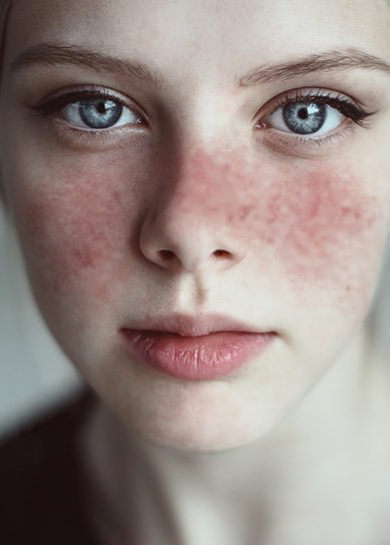
The disease, which has an autoimmune character, is a chronic disease in which the immune system attacks various tissues of the body and causes inflammation. As a result of inflammation, other symptoms occur, especially pain and swelling. With SLE, almost all organs of the body can be damaged, especially the joints, skin, lungs, kidneys, heart, nervous system, blood vessels. The disease can affect anyone, man, woman and child. It is thought that environmental factors such as gender, genetic factors, ultraviolet light, some drugs and some infectious agents play an important role in the development of the disease.
* Sensitivity to ultraviolet light and sunlight
* Arthritis of the hands and feet
* Red rash on the nose and cheeks
* Mild or severe decrease in kidney function
* Inflammation of the pleura and the pericardium
* Problems with the brain and nervous system
* Mucosal ulcers
* Joint areas
* Kidneys
* Nervous system
* Skin
* Heart and pleura
* Rarely, brain and blood vessels
* Muscles
* Liver
As a result of the researches, it has been determined that lupus is seen at a higher rate in women than in men. Almost 9 out of 10 patients are female patients. It is emphasized that the reason for this may be related to hormones. It has also been determined that the siblings of those with lupus are 30 times more likely to have this disease than other people. This shows the importance of the genetic factor related to the disease. SLE patients may have photosensitive skin. They can also be adversely affected by artificial lighting, especially by sunlight. Therefore, they may not be exposed to the effects of sun and ultraviolet light for long periods of time. They should not neglect to use protection in case of spending long hours outside.
The term "disease of a thousand hundred" is rightly used for lupus. Because it is a disease with highly variable signs and symptoms and differs from patient to patient.
* Sensitivity to ultraviolet light and sunlight
* Arthritis of the hands and feet
* Red rash on the nose and cheeks
* Mild or severe decrease in kidney function
* Inflammation of the pleura and the pericardium
* Problems with the brain and nervous system
* Mucosal ulcers
Which parts of our body does lupus damage?
In fact, it can affect every part of our body, especially in the places below:* Joint areas
* Kidneys
* Nervous system
* Skin
* Heart and pleura
* Rarely, brain and blood vessels
* Muscles
* Liver
